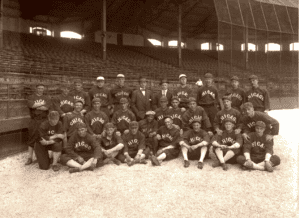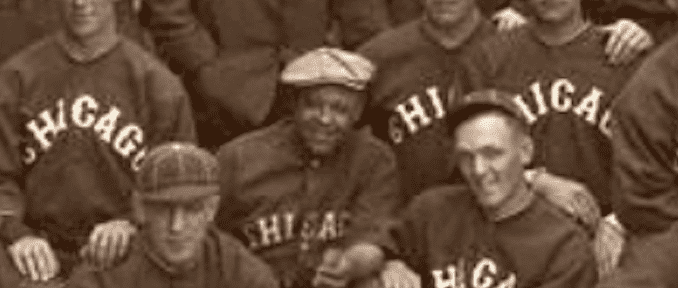Remembering Riley Johns, LRCH’s black trainer and groundskeeper of the Jim Crow era
The history of race in the South is an often ugly, usually messy, always complicated thing. I graduated from Little Rock Central High, which the Little Rock Nine dramatically integrated in 1957 in the most serious test to Brown v. Board of Education decision to that point. I thought I knew my alma mater’s race history pretty well, especially when it came to sports.
Not really, I recently found out.
This came to light during interviews for my Arkansas sports history book. I spoke to Eddie Boone, a former LR Central basketball and football coach and the first black coach in the Arkansas Activities Association. Boone and his daughter, Shona Ruth, mentioned decades before Boone arrived at Central, an African-American man had served as its trainer, equipment manager and groundskeeper. He’d even lived in Central’s Quigley Stadium.
This was in the 1930s through early 1950s, when Central was technically all-white.
His name was Riley Johns, and he was something of a living legend in his day.
In a limited capacity, he helped coach football, basketball, and track, according to the Encyclopedia of Arkansas History & Culture. Nicknamed “Doc,” Johns was considered the best trainer in the South. He was so good he had to turn down job offers from large universities. His services were sought after by colleges playing in Little Rock, including the University of Arkansas Razorbacks.
When traveling with the team, Johns stayed in separate hotels. During athletic banquets, he sat by himself at tables which had been specially decorated for him. “When students learned Johns was ill, school officials proclaimed December 14, 1949, as ‘Riley Johns Day’ with an assembly basketball game staged between school alumni and the Tiger varsity basketball team,” Linda McDowell wrote. “Johns finally got a chance to coach a team officially, with his alumni winning over varsity. At half-time, he was presented with a collection of money raised by students and staff to defray his medical expenses.”
Johns died on October 22, 1950*. More than 4,000 people, black and white, attended his funeral, according to the Associated Press. They passed by his body lying in the stadium’s east lobby to pay their respects.
Turns out, Johns’ story isn’t so singular.
Across the south, midwest and northeast, African Americans played big roles on all-white athletic programs. This happened in all team sports (and track & field) and at all competitive levels. Look at the center of the 1915 Chicago White Sox team photo below. In the middle you’ll see the African-American trainer, William Buckner.

Buckner was one of a few black trainers in Major League Baseball before integration.
In roster shots, they’re smiling. Those looks, however, mask a hard truth: These men’s job status was far more precarious than their white counterparts’. At any moment, they could be fired on a racist whim. This, in fact, was the fate Buckner suffered in 1917.
While pro baseball historians have written about some of these MLB pioneers, very little work has been done on the college trainers. For the most part, they have been forgotten. One such example is Jack Shelton of Rice University. Click here to read about him.
*In 1952 Jerry Dhonau resigned from his position as co-editor of Central’s student newspaper because the journalism teacher wouldn’t publish a column he wrote advocating for a new field house to be named after Johns. Dhonau had earlier worked with Johns when he was a manager for the football team. Johns “was a father figure to some of the athletes there, and I got to know him pretty well,” Dhonau told longtime Arkansas journalist Ernie Dumas in 2000.
(Through the Darragh Foundation, Ernie Dumas helped finance some of my African-American Athletes in Arkansas book along with the Black History Commission of Arkansas. I’m forever grateful to both organizations.)



